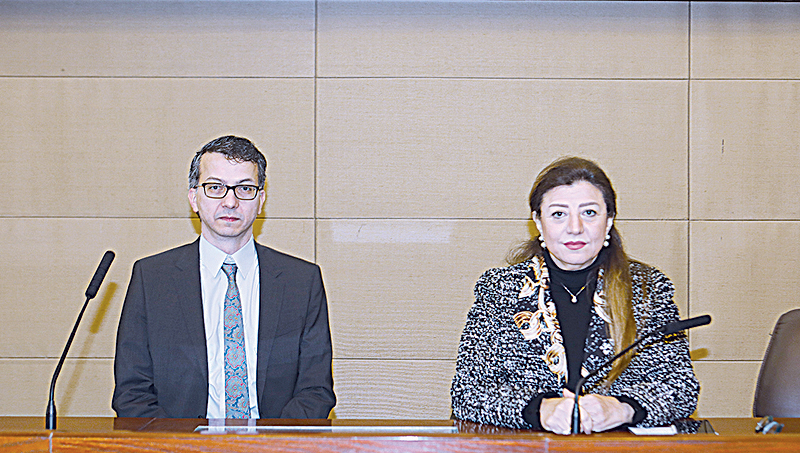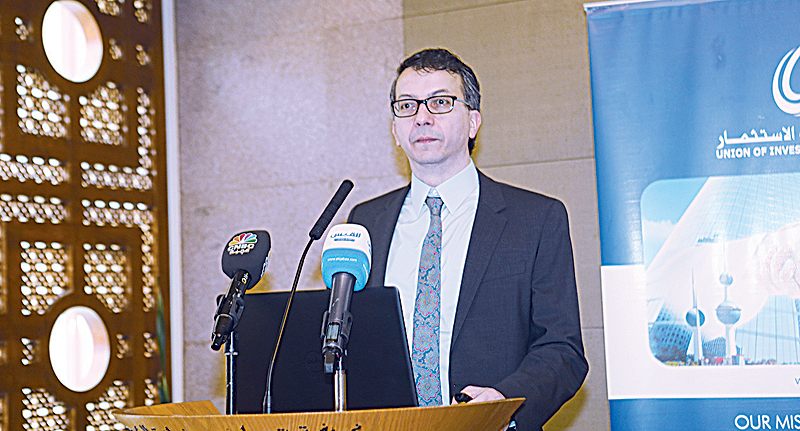KUWAIT: The Union of Investment Companies (UIC) held a seminar on 'Global Financial and Economic Outlook for 2019' at the Chamber of Commerce and Industry yesterday, in cooperation with the Quorum Center for Strategic Studies. During her opening speech, Technical Support Manager and acting Director of Investment Training Center Fadwa Darwish pointed out that the Kuwaiti economy is affected by global developments, so this seminar sheds light on the latest international developments.

Tariq Al-Rifai, CEO of Quorum Centre for Strategic Studies, gave an overview of the current global economic outlook for 2019, highlighting current problems facing major economies in Europe, United States and China. He also discussed the current economic growth cycle, which is strongly believed to be nearing an end. Rifai believes that the global economy is heading towards another global recession.
"According to published statistics, economic growth in Europe is declining, including in some of the largest economies, including Germany and France. Italy has already entered a recession. Also, the central bank of the United Kingdom, the Bank of England, recently lowered its economic growth forecast, citing Britain's exit from the European Union, trade wars and other global economic problems as a reason for this negative outlook," Rifai said.
"The continuing trade war between the United States and China has begun to affect global trade and economic growth, especially in China. I believe that the already depressed economic growth figures will only worsen as the trade war enters its second year. These problems are expected to affect global economic growth and the IMF expects to experience less economic growth in 2019 due to these increasing factors and risks," he said.
About Kuwait's economy, he explained how weak economic growth globally means lower oil prices, adding that Kuwait should prepare to depend less on oil, because the next 10 years will not be like the past 10 years. "As the world economy approaches its first recession since 2009, we can expect future oil prices to drop, meaning more pressure on the government of Kuwait to ensure its implementation of the 2035 vision, which aims to diversify the economy away from dependence on oil revenues," he added.
"We are at a late stage in the economic growth cycle, which means the next stage is an economic contraction (recession). A recession is a normal occurrence and does not necessarily mean bad news for investments, but other problems in the global economy could trigger another financial crisis and affect investments. Rising interest rates in the US are causing problems in emerging markets and will continue to do so. Oil is headed lower and will remain low for longer than most expect. Stock markets around the world have been correcting this year, with few exceptions, so they will start falling too. China is also headed for a major financial and economic disaster, which will affect all of us," Rifai concluded.
The Union of Investment Companies in Kuwait regularly hosts economic and financial seminars and conferences with the aim of informing analysts and investors about the local, regional and global market and investment trends and issues.
By Faten Omar











